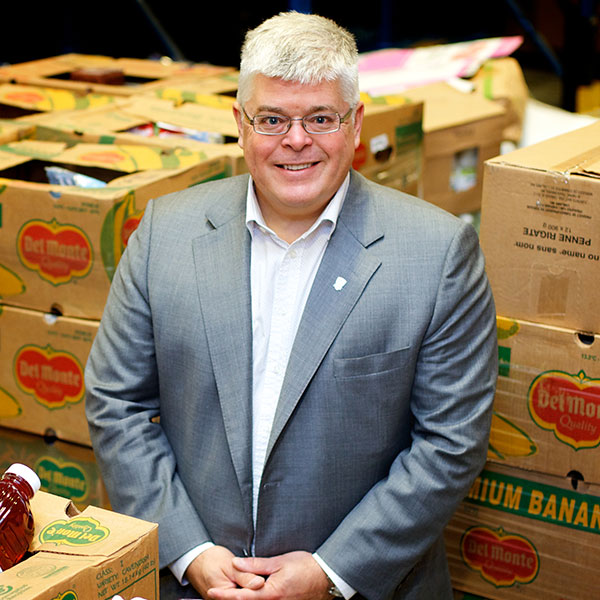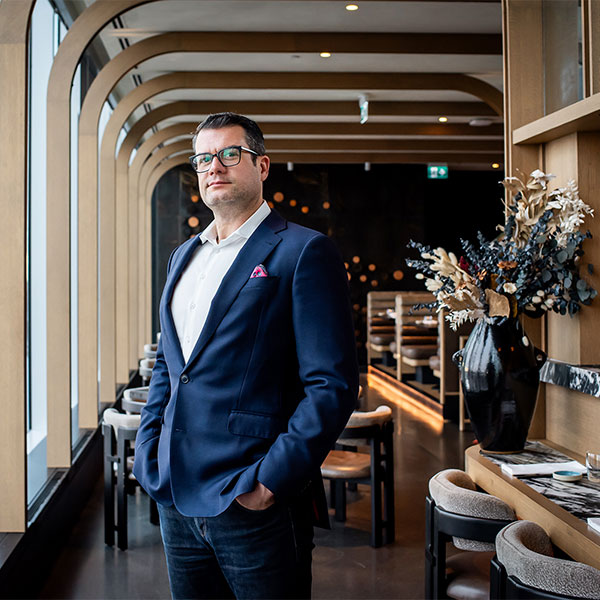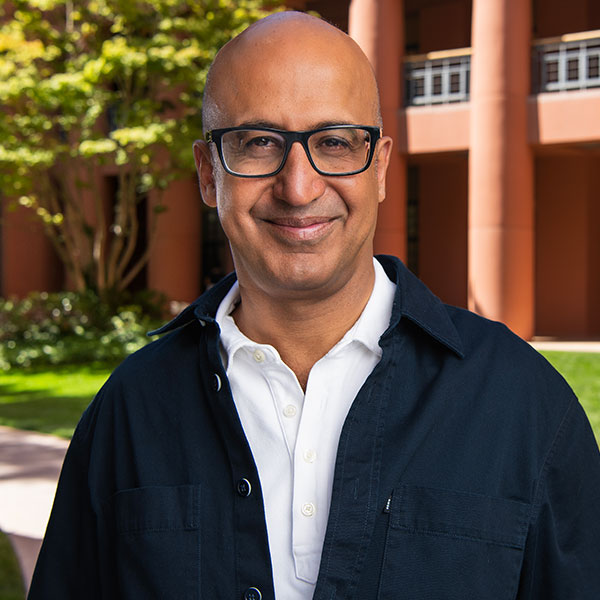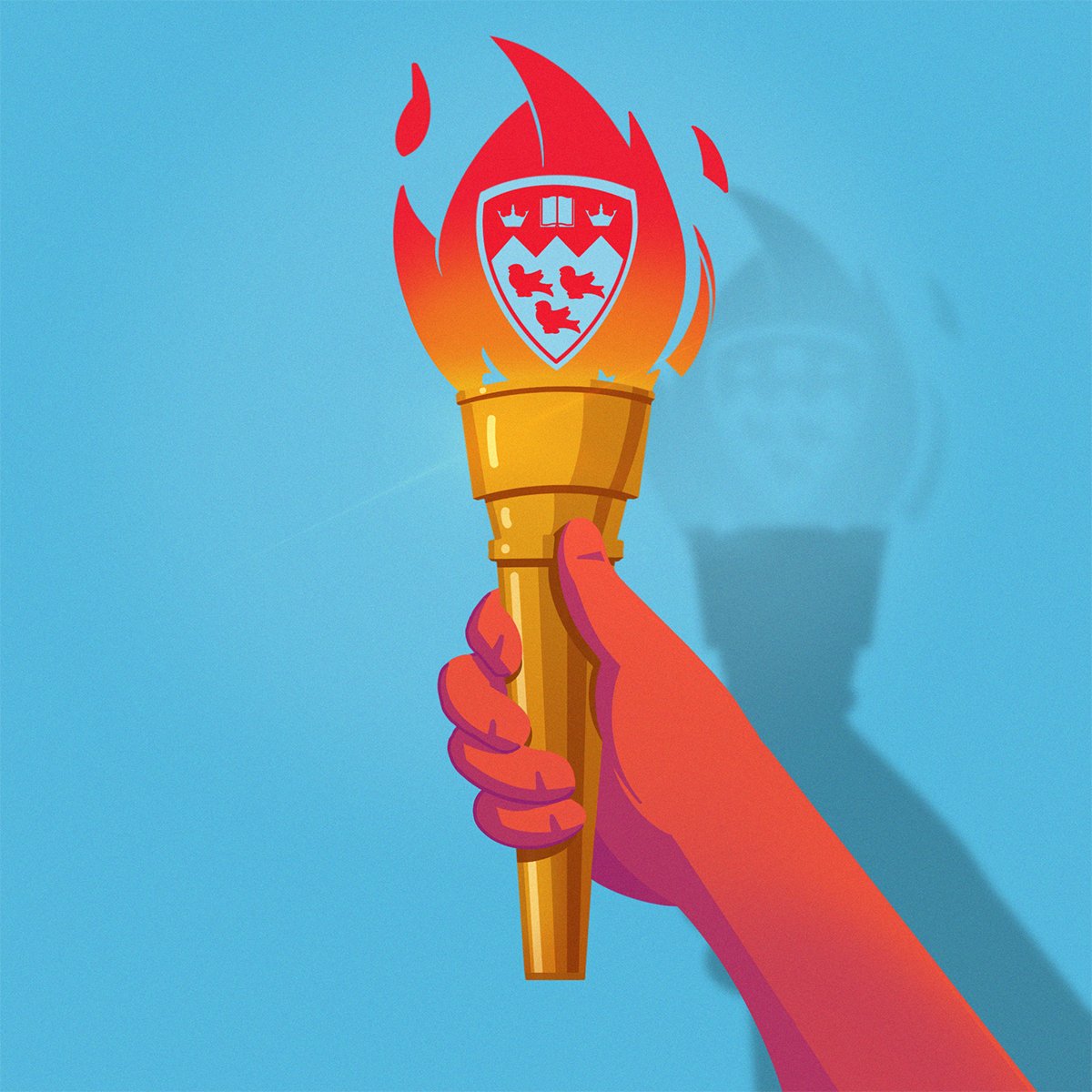Richard Daneau, BCom’86, believes that those who complain the loudest that food banks don’t teach their users to be self-sufficient are people who ate well that morning.
Daneau, the executive director of Moisson Montréal, the country’s largest food bank, says the partner organizations he works with are acutely aware of the need to help people help themselves – but first things first.
“We’re going to fill your belly and then we’ll talk to you about collective kitchens and urban agriculture.”
Daneau shows off his organization’s efficient warehouse with pride. Moisson Montréal annually distributes almost 14.4 million kilograms of food. There are pallets filled with boxes of fruits and vegetables, baked goods and canned goods, yogurt and cheese. In some sections, workers are busy sorting; in another, a hive of volunteers helps pack.
Moisson Montréal collects donated goods from supermarkets, businesses like General Mills, and national and provincial food banks. These can be imperfect produce or mismeasured or blemished packets of foodstuff, which are then delivered to roughly 250 community organizations that in turn help more than 137,000 individuals each month.
Daneau says his organization plays two important roles. The first is humanitarian – offering a measure of food security to those in precarious situations. An increasing number of the people who make use of Moisson Montréal’s offerings are students, pensioners and families – people who find themselves skipping a few meals in order to pay the rent.
The other role the organization plays is environmental. Massive amounts of perfectly fine food are snatched away from a landfill fate. “It’s nonsense to not use that food that would be wasted, and not give it to people who don’t have money to buy some,” says Daneau.
Daneau joined Moisson Montréal in 2016. Before that, he jokes that he had spent a year “sitting around in pyjamas reading the newspaper,” after selling off his snowblowing equipment company. He admits he set a dubious example while extolling the importance of hard work to his teenage sons.
But all that reading made an impact. “I had time to think of many things. People my age will probably be the first generation that will leave less to their children than what we got from our parents. Individually we cannot do much about it, but at least we can get ourselves into some positive action.”
Enter Moisson Montréal.
Used to a corporate culture in which the boss calls the shots, he quickly learned that in a non-profit organization, employees work for the cause and don’t hesitate to chime in with their impassioned opinions. “This could be seen as a management constraint, but it’s a tremendous asset,” he says.
Moisson Montréal’s staff and volunteers constantly refine their rigorous practices. Daneau swears if his privately owned company had been able to implement similar standards as diligently, “we would have printed money.”
He says their next project is to set up a food processing unit, so they can chop, cook and flash-freeze vegetables to render them less perishable.
Daneau points to funding as the organization’s biggest challenge, with barely 10 per cent of its financing coming from governments. “On a yearly basis we have to start over and say, ‘We have to find $5.5 million. The future of philanthropy remains in small donations, so it’s people’s hearts we have to touch.”
And each touch goes a long way at this efficient organization. For every dollar donated, Moisson Montréal says it can distribute $15 worth of food.
Daneau claims he hasn’t worked this hard or had this much fun in 30 years. He issues an open invitation to skeptics to come see his team in action. “Don’t listen to what I say, come and give us half a day of your time and look at us from the inside and make your own opinion of what we are and who we are.”
He’s confident you’ll walk away impressed. “We’re not into misery, we’re into joy, something extremely positive.”



